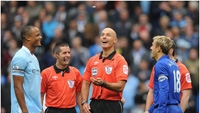UK landlady wins EU TV sporting rights case

The market for broadcasting rights across the European Union (EU) has been thrown into disarray by a court ruling that could prevent separate deals for each member state. The European Court of Justice has ruled that, in the UK, public bars should be allowed to show football matches using satellite feeds from any EU member state rather than being forced to use a service that has purchased the rights in their own country.
The case was started by one individual, Karen Murphy, a landlady of a public house serving alcohol in Portsmouth, UK. She had campaigned to use a subscription from the Greek Nova satellite broadcaster to show premier league football matches to her customers rather than the service provided by satellite operator Sky, which had purchased the rights in the UK. This was a big saving, since Nova charged £800 ($1250) a year compared with over £10,000 for an equivalent subscription to show the matches with Sky.
The pub was taken to court by enforcers working for the Football Association Premier League Limited (FAPL), the private company representing the broadcasting interests of the 20 English Premier League clubs. The pub also was fined £8000 but appealed to the European Court of Justice, which issued interim advice in the pub’s favour in Feb. 2011. That decision was followed by the final ruling this week. In this ruling, the European Court stated that the previous ban on decoders for satellite broadcasts from other EU states could not “be justified either in the light of the objective of protecting intellectual property rights or by the objective of encouraging the public to attend football stadiums.”
The result is that the UK rights holders to top UK football matches, Sky and ESPN, are now considering a major shift in strategy. The Premier League itself is also considering its position, being currently the richest football league in the world, earning £1.782 ($2.6) billion for UK TV rights between 2010 and 2013. On top of this, it earned over £1.4 billion from TV rights in the rest of the world over that same period. So far, the Premier League has been able to maximize this second amount by striking separate deals in each country. This will not work in the future if the European Court ruling is applied to all EU member states, which looks likely.
At present, the EU ruling is confined to the UK and is not legally binding even there. However, as the European Court of Justice is responsible for ensuring that EU laws are enforced in all 27 member countries, national judges tend to follow its direction. Therefore, the UK advice could be scaled up across the whole EU, leading to deals that operate across multiple countries rather than just one.
In practice, this could actually lead to big pay TV operators such as Sky reinforcing their position because they would be compelled to bid for rights across the whole of the EU in a single package. It could be, then, that an unintended consequence of the European Court ruling will be to prevent smaller operators such as Nova from broadcasting premium sports events, even in their own countries, since they would be outbid by Sky for rights across the whole EU.
Get the TV Tech Newsletter
The professional video industry's #1 source for news, trends and product and tech information. Sign up below.
